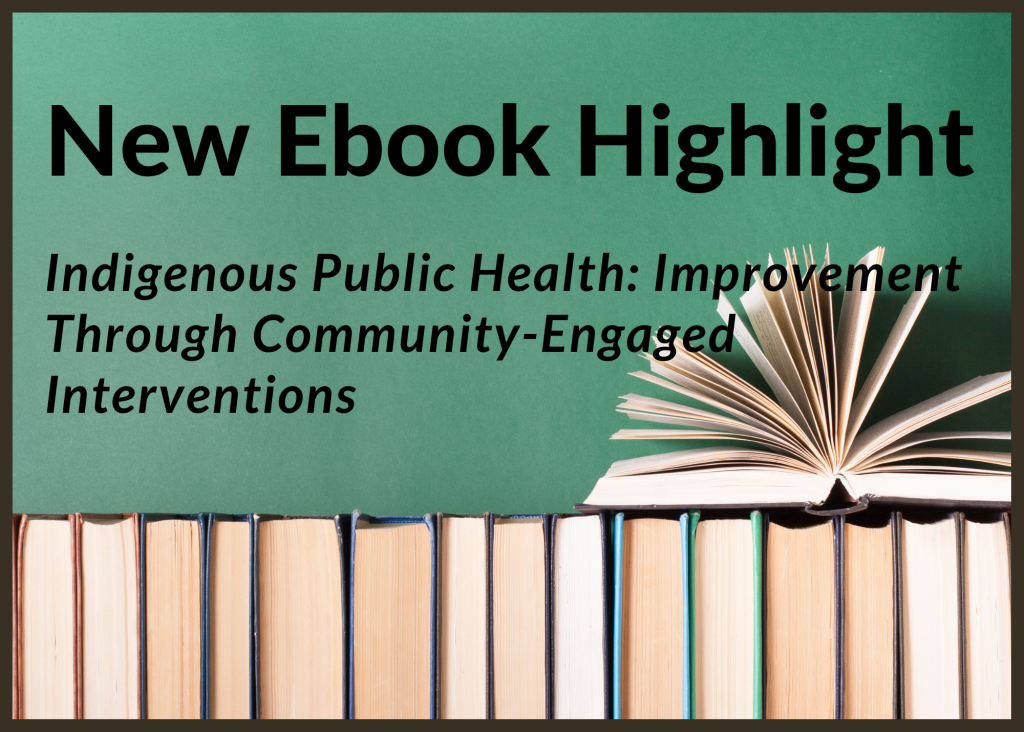We’ve recently added Indigenous Public Health: Improvement Through Community-Engaged Interventions to our online collection.
Income, education, job security, food and housing, and gender and race are all examples of the social determinants of health. These factors influence the health and well-being of patients, as well as how they interact with health care providers and receive health care, and unfortunately, certain biases can become a barrier to maintaining good health in some communities. Indigenous groups in North America and US-associated Pacific jurisdictions have been subjected to occupation and forced relocation, mandated boarding schools, and other attempts by state and federal governments to eliminate their cultural strengths and resources.
Indigenous Public Health illustrates how successful community engagement strategies, programs, and resources within Indigenous communities have resulted in diverse, successful public health programs, and helped community members overcome barriers to health. Editors Linda Burhansstipanov and Kathryn L. Braun explore the problems that impact engagement efforts, discuss public health topics, acknowledge and honor the strengths of different communities, and emphasize that collaboration and the sharing of resources can only improve lives.
